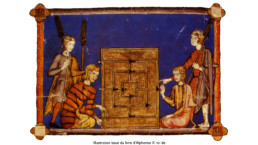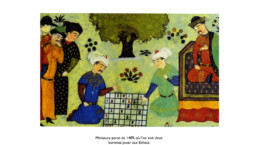Since when do humans play?
Prehistoric peoples probably played, but except for a few bones, no clear evidence has been found to date to certify the hypothesis.
The first traces of a game invented by humans were discovered in Europe, and refer to the Bronze Age (Chalcolithic period) nearly 7000 years ago. However, we have found nothing about the rules or the way the game is played.
In the Persian Gulf, we discovered the oldest game in the world: “The royal game of Ur”.
The Assyrians invented this game more than 5000 years ago. It was a board game, with a board representing a course and pieces that players were moving. This game is preserved in a museum in London.

Archaeologists have also found evidence (paintings and frescoes) of puzzle games in Egypt and in the Babylonian civilization. During the ancient Greek period many games were invented, but no trace of games with coins was found. On the other hand, Roman games came to the surface and they maybe were identical to Greek games.
In Europe during the middle Age, there were mainly games of skill and outdoor games. But the relevant sources are not verified. In 1280 the king of Castile and Leon, “Alfonso X the Wise,” wrote “The Book of Games”, a collection of many games such as Chess or Alqueque.

Various books were written over the centuries, an encyclopedia was published in France in 1888. The entire population played games, but some (cards, chess) were reserved for the bourgeoisie.
It was during the industrial revolution, around 1850, that the game known today as checkers or the game of goose spread. In 1980, the game industry experienced a revival in the West. Today, the game family of checkers is enormous and there are hundreds of games and even more variations around the world.
For centuries, games have crossed borders and oceans, through merchants, explorers or armies. All games, and especially those in Europe, were marked by a great foreign influence.





